Opinion
Unrealities of call for Covid-related burials
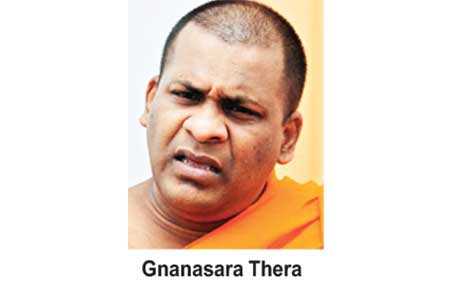
London protester’s carrion call
By ROHANA R. WASALA
Jehan Perera has proffered unsolicited advice to the government (‘Religious clergy take stand for religious right to burial’/The Island/December 29, 2020) seeking to force its capitulation to foreign interventionist forces, through false propaganda. The same article appeared simultaneously on the organization’s website under the title: ‘Government to take a stand for religious right to burial’. The charge implied by this title (i.e., indecisiveness in allowing burial of Corona-dead Muslims) against the government is baseless.
It was in March (nine months ago) if my memory doesn’t fail me, that the Director of Health Services (DHS), the duly appointed Competent Authority in the Covid-19 containment situation, issued a special gazette notification decreeing that bodies of persons who die of the disease be cremated. That decision was taken by the Competent Authority based on the advice of experts, not directly by the government which had delegated the power to do so to that official. Muslims’ (or anyone else’s for that matter) right to burial has never been denied, and is not being challenged in any way. But that right cannot be exercised in this national emergency. It is only because of the strict health guidelines laid down on a cold scientific basis that cremation has been made mandatory.
Religious sentiments are common to all. Buddhists, Hindus, Catholics, and others are also affected by the same painful restrictions in the performance of religious rituals, and in the choice of the proper mode of disposal of the bodies of their near and dear ones dead from the corona infection. If our local experts say there is no alternative to cremating bodies to prevent the virus from contaminating the soil or the water resources of the country, then that has to be accepted in the best interest of all. The WHO periodically issues certain broad health guidelines, but common sense tells us that they need to be adapted to suit the specific local conditions that exist in each country. It is absolutely wrong to cry out to the world that the government is trampling on the right of Muslims to bury their dead.
The government is not neglecting its duty out of a sense of complacency (‘a kind of self-satisfaction’) as JP seems to suggest. Only those without an iota of humane concern for the wellbeing of all Sri Lankans, can discount or totally ignore the prodigious amount of work that our health workers and the security personnel (the latter looking after the logistics aspect of the massive operation) do, and the tremendous personal sacrifices they make in helping the nation to survive the catastrophic corona pandemic. If the present administration was as dysfunctional as the cursed yahapalanaya that JP supported, could this sort of efficient mobilization of the nation be realized? There is no need for me to refute his false allegations of delays in decision making regarding the artificial burial-cremation issue or in ordering suitable vaccines (several of which, globally, are still being tested); the government has already taken the necessary steps in obtaining them at the earliest possible.
JP drags in the (recent Mahara) ‘prison riots’ in order to highlight them as ‘a harbinger of what can happen in the larger society, if a large section of the people feel they are being trapped and marginalized to suffer the consequences’. The implied allegation that Muslims (because the prison population cannot be described as ‘a large section of the people’) ‘are being trapped and marginalized’ is entirely baseless. There is congestion in prisons. That is a longstanding problem that must be fixed. The incidents are under investigation. JP’s concern is not with the welfare of the prisoners (most of them drug addicts under detention) or the difficulties the prison and security forces personnel experience in dealing with groups of drugged inmates fighting among themselves, while others were trying to break the gates to escape.
He asserts that ‘among these worst affected sections of the population, it appears that the Muslim community has been disproportionately affected by the Covid infection’, thereby falsely suggesting that, like the prison population, the Muslims are being confined to cramped conditions, enabling the rapid spread of the deadly infection. JP who knows how abominably some innocent but ill-informed and irresponsible Muslims behaved towards the health workers who were doing their level best to help them, while taking the risk of exposing themselves and their loved ones back home to the virus through contact transmission. Ten times more non-Muslims also live in congested areas, not out of choice, but for lack of better places to live (in spite of the fact that Muslims, according to JP’s opinion, as a traditionally trading community, tend to live more in urban settings than the Sinhalese and Tamils, being basically agrarian communities, who possess lands and live in more spacious environments).
But JP goes on to distort facts to project the few deliberately non-cooperative Muslims as victims of alleged governmental insensitivity to their religious feelings: ‘They are afraid that if they are confirmed as Covid patients, both they and their relatives will be at risk of being forcibly cremated if they fail to recover from the coronavirus infection, which goes against fundamental Islamic tenets.’ Won’t these Muslims listen to reason, if their educated leaders explain to them that if cremation is what the health authorities order in this hopefully temporary situation, that is the law, and that it must be obeyed without questioning.
The dangerous implication of what JP writes is not hard to guess: at least some Muslims may try to hide Covid patients and deaths from the authorities, and put paid to all the latter’s endeavours to contain the spread of the virulent virus. JP even refers to the Minister of Justice having raised concerns about mandatory cremation of bodies of Muslims who have died of Covid-19. In this situation sensible people listen to doctors and scientists, rather than politicians. The local experts who know what is best for Sri Lanka in the current situation say that cremation guarantees the total destruction of the virus, and that burial doesn’t, and that therefore the first (cremation) is the only option for the country.
JP tries to bolster his arguments by quoting BBS General Secretary Ven. Galabodaaththe Gnanasara Thera: ‘The fact that the religious belief of the Muslim community is being violated has led the leader of the nationalist Bodhu Bala Sena, the Buddhist prelate Ven Galagodaaththe Gnanasara to speak up for the religious right of the Muslims to be buried even in cases of Covid deaths.’ JP butters him up as a ‘Buddhist prelate’; the monk is no prelate (no Nayake); he is just an ordinary monk, who has nevertheless achieved some success in waking up the Nayake monks at least to a sitting up position, prising open their eyes to the existential threats currently posed by religious fundamentalists of both varieties to the Buddha Sasana. Originally, he was vehemently against burial, because that is contrary to expert advice and is in contravention of the DHS’s ruling.
As a Buddhist monk he is suggesting this out of compassion for innocent Muslims who are upset (out of ignorance) about having, for this while, to burn the bodies of their relatives dead from corona. He must be thinking of some way to stop Islamic religious extremists from gaining a firmer foothold within the Muslim polity by exploiting this highly sensitive burial issue. Ven. Gnanasara, remained apolitical, whatever critics might say, until Ven. Ratana’s fast in Sri Dalada Maligawa precincts, something that the Most Ven. Mahanayakes censured in no uncertain terms, and Ven Gnanasara himself criticised. The BBS secretary may be launching a preemptive strike at Ven. Ratana, who is going to parliament as the national list MP from the AJBP.
About a fortnight ago, Ven. Gnanasara told the media how NGOs were creating global hatred and ill-will against Buddhist monks, based on the false allegation that it was they who were demanding the cremation of bodies of Muslim dead, out of spite. In a video of a protest rally held in London on December 13, 2020 against Sri Lanka’s (health-authorities-imposed) Corona-related temporary burial ban, a female demonstrator, speaking in Sinhala, is heard loudly demanding that our President should reject offhand what she mocks as the ‘legal advice of the bald-headed uncles dressed in yellow robes’ (sivuru porawagath thatta mamalage neethi upades piliganta epa). BBS General Secretary Ven. Gnanasara Thera played a fragment of the woman’s denunciatory harangue containing this remark from his phone at a short news briefing on December 22, 2020. The phrase ‘thatta mamala’ is an utterly disrespectful way to refer to Buddhist monks that only an ignorant insensitive uncultured person could use. It is deeply offensive to all Buddhists, especially to Sinhalese Buddhists, who treat monks with reverence whatever criticisms are justly or unjustly made about them. Obviously, the woman is an uncouth non-Buddhist Sinhala speaker. She says: ‘We don’t want any religious frictions. We want to live in peace, without having to burn our children, these people, like animals. Mr President, please (mediate in this matter and) arrange for us to bury (our dead). We have no use for the yellow-robed thatta uncles’ advice’. She hardly conceals her callous disregard of the feelings of fellow Sri Lankans who make no issue of cremating their dead relatives in the present circumstances in the interest of public health.
The monks have repeatedly made it clear that they, like the rest of the people of Sri Lanka and the government, are not concerned about whether dead bodies are buried or cremated, or about whether one method is of greater merit than the other, except that in the deadly Corona pandemic situation, the mode of disposal of corpses of Corona dead should be done according to the strict instructions of the authorised health experts, who, invariably take into consideration the global guidelines issued by the World Health Organization (WHO). The wording of the WHO guidelines shows that they are not expected to be followed blindly by every country; they need to be modified primarily to suit the local physical conditions, and only secondarily to the religious sensitivities of the people. It is common sense that religious sensitivities are common to all communities, and that these must be inter-communally respected without discrimination.
Anti-Sri Lanka agents abroad and anti-national forces at home have launched a carefully calculated propaganda blitzkrieg whose barely concealed target is the present government, although it is overtly based on the false allegation that Buddhist monks are demanding the cremation of bodies of Muslims who have died of Covid-19 spitefully disregarding their surviving relatives’ religious sensitivities. Nothing is further from the truth than this charge against Buddhist monks.
- News Advertiesment
See Kapruka’s top selling online shopping categories such as Toys, Grocery, Flowers, Birthday Cakes, Fruits, Chocolates, Clothing and Electronics. Also see Kapruka’s unique online services such as Money Remittence,News, Courier/Delivery, Food Delivery and over 700 top brands. Also get products from Amazon & Ebay via Kapruka Gloabal Shop into Sri Lanka.
Opinion
Take Human Rights seriously, not so much the council or office
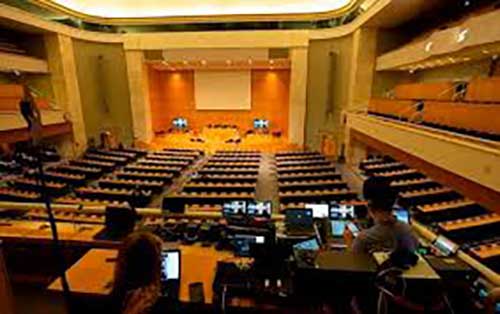
By Dr Laksiri Fernando
The 46th Session of the UN Human Rights Council started on 22 February morning with obvious hiccups. The Office, to mean the Office of the UN High Commissioner for Human Rights, finally decided to hold all sessions virtually online, only the President of the Council and the assistants in the high table sitting at the UN Assembly Hall in Geneva. The President, Ms. Nazhat Shammen Khan, Ambassador from Fiji in Geneva, wearing a saree, was graceful in the chair with empty seats surrounding.
In the opening session, the UN General Assembly President, UN General Secretary, UN High Commissioner for Human Rights, and Head of Foreign Affairs, Switzerland (as the host country), addressed remotely the session. In fact, there was no need for Switzerland to have a special place, as the UN is independent from any host country. Switzerland is fairly ok, however, if this tradition is followed, the UN General Assembly may have to give a special place to the US in New York.
Initial Addresses
UN General Secretary, Antonio Guterres’ address could have been quite exemplary if he gave a proper balance to the developed and developing countries. He talked about racism and fight against racism but did not mention where racism is overwhelmingly rampant (US and Europe) and what to do about it. Outlining the human rights implications of Covid-19 pandemic, he made quite a good analysis. It was nice for him to say, ‘human rights are our blood line (equality), our lifeline (for peace) and our frontline (to fight against violations).’ However, in the fight against violations, he apparently forgot about the ‘blood line’ or the ‘lifeline’ quite necessary not to aggravate situations through partiality and bias. He never talked about the importance of human rights education or promoting human rights awareness in all countries.
His final assault was on Myanmar. Although he did not call ‘genocide,’ he denounced the treatment of Rohingyas as ethnic cleansing without mentioning any terrorist group/s within. His call for the release of Aung San Suu Kyi and other civilian leaders undoubtedly should be a common call of all. However, he did not leave any opening for a dialogue with the military leaders or bring back a dialogue between Aung San and Min Aung, the military leader. With a proper mediation, it is not impossible. Calling for a complete overhaul as the young demonstrators idealistically claim might not be realistic.
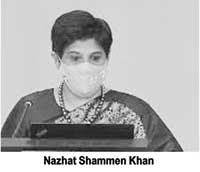 High Commissioner Michelle Bachelet’s address was brief and uncontroversial this time without mentioning any country or region. It is clear by now perhaps she is not the real author of the Report against Sri Lanka, but someone probably hired by the so-called core-group led by Britain. Her major points were related to the coronavirus pandemic trying to highlight some of the socio-economic disparities and imbalances of policy making that have emerged as a result. The neglect of women, minorities, and the marginalized sections of society were emphasized. But the poor was not mentioned. As a former medical doctor, she also opted to highlight some of the medical issues underpinning the crisis.
High Commissioner Michelle Bachelet’s address was brief and uncontroversial this time without mentioning any country or region. It is clear by now perhaps she is not the real author of the Report against Sri Lanka, but someone probably hired by the so-called core-group led by Britain. Her major points were related to the coronavirus pandemic trying to highlight some of the socio-economic disparities and imbalances of policy making that have emerged as a result. The neglect of women, minorities, and the marginalized sections of society were emphasized. But the poor was not mentioned. As a former medical doctor, she also opted to highlight some of the medical issues underpinning the crisis.
Then came the statements from different countries in the first meeting in the following order: Uzbekistan, Colombia, Lithuania, Afghanistan, Poland, Venezuela, Finland, Fiji, Moldova, Georgia, Kazakhstan, Equatorial Guinea, Vietnam, Belgium, and Morocco. The obvious purposes of these statements were different. Some countries were apparently canvassing for getting into the Human Rights Council at the next turn perhaps for the purpose of prestige. Some others were playing regional politics against their perceived enemies. This was very clear when Lithuania and Poland started attacking Russia.
But there were very sincere human rights presentations as well. One was the statement by the President of Afghanistan, Mohammad Ashraf Ghani. He outlined the devastating effects that Afghanistan had to undergo during the last 40 years, because of foreign interferences. The initial support to Taliban by big powers was hinted. His kind appeal was to the UN was to go ‘beyond discourse to practice’ giving equal chance to the poor and the developing countries to involve without discrimination.
Controversial Presentations
China’s Foreign Affairs Minister, Wang Yi, made his presentation almost at the end of the first day. This is apparently the first time that China had directly addressed the Human Rights Council. Beginning with outlining the devastating repercussions of the coronavirus pandemic he stressed that the world should face the challenges through ‘solidarity and cooperation.’ He broadened the concept to human rights solidarity and cooperation. His expressed views were quite different to the others, particularly to the Western ones.
He frankly said that what he expresses are the views of China on human rights without claiming those are absolute truths or forcing others to believe or implement them. There were four main concepts that he put forward before the member countries. First, he said, “We should embrace a human rights philosophy that centres on the people. The people’s interests are where the human rights cause starts and ends.” Second, he said, “we should uphold both universality and particularity of human rights. Peace, development, equity, justice, democracy, and freedom are common values shared by all humanity and recognized by all countries.” “On the other hand,” he said, “countries must promote and protect human rights in light of their national realities and the needs of their people.”
“Third,” he said, “we should systemically advance all aspects of human rights. Human rights are an all-encompassing concept. They include civil and political rights as well as economic, social, and cultural rights.” He then emphasized, “Among them, the rights to subsistence and development are the basic human rights of paramount importance.” Fourth, “we should continue to promote international dialogue and cooperation on human rights. Global human rights governance should be advanced through consultation among all countries.”
It was on the same first day before China, that the United Kingdom launched its barrage against several countries not sparing Sri Lanka. The Foreign Secretary, Dominic Raab, delivered the statement from top to bottom attacking alleged violating countries on human rights. But there was no mentioning of Israel for the repression of Palestinians or the systemic racism rampaging in the United States, including the 6 January attacks on the Capitol by extremist/terrorist groups.
His first sermon was on Myanmar without acknowledging the British atrocities or mismanagement of this poor and diverse country during the colonial period. He was quite jubilant over implementing sanctions and other restrictions over the country. Many sanctions, in my opinion, are extortions. Undoubtedly, Aung San Suu Kyi and other leaders should be released, and democracy restored. This is a task of the whole council and when one or two countries try to grab the credit, there can be obvious reservations of others.
His further scathing attacks were against Belarus, Russia, and China. Some appeared factually correct but not necessarily the approach or the motives genuine. The following is the way he came around Sri Lanka. He said,
“Finally, we will continue to lead action in this Council: on Syria, as we do at each session; on South Sudan; and on Sri Lanka, where we will present a new resolution to maintain the focus on reconciliation and on accountability.”
‘Action’ to him basically means repeatedly passing resolutions, of course imposing economic and other sanctions. He said, “as we do at each session”; like bullying poor or weak countries at each session. Can there be a resolution against Russia or China? I doubt it.
What would be the purpose of presenting a resolution against Sri Lanka? As he said, “to maintain the focus on reconciliation and on accountability.” This will satisfy neither the Tamil militants nor the Sinhalese masses. But it might satisfy the crafty Opposition (proxy of the defeated last government). This is not going to be based on any of the actual measures that Sri Lanka has taken or not taken on reconciliation or accountability. But based on the ‘Authoritarian and Hypocritical Report’ that some anti-Sri Lankans have drafted within the Office of the High Commissioner for Human Rights. This what I have discussed in my last article.
In this context, successful or not, the statement made by the Sri Lanka’s Minister of External Affairs, Dinesh Gunawardena, in rejecting any resolution based on the foxy Report of the Office of the UN High Commissioner for Human Rights, in my concerned opinion, is absolutely correct.
Opinion
President’s energy directives ignored by the Power Ministry: Another Point of View
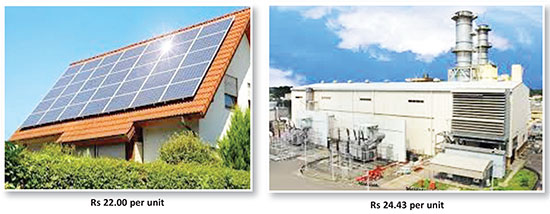
Dr Tilak Siyambalapitiya
Dr Janaka Rathnasiri laments (The Island 19 Feb 2021) that the Power Ministry has ignored the President’s directive to draw 70% of energy from renewable sources by 2030. I saw the approved costs of electricity production for 2019, published by the Public Utilities Commission (PUCSL).
PUCSL has also approved the prices to sell electricity to customers. Although various customers pay at various “approved” prices, the average income from such “approved” prices in 2019 was Rs 17.02 per unit. It is not only the Ministry, according to Dr Rathnasiri, ignoring the President; PUCSL is also breaking the law, which says prices and approved costs should be equal.
 So there is already an illegal gap of Rs 21.59 minus 17.02 = Rs 4.57 per unit of electricity sold. If electricity prices are not to be increased, as stated by many in the government and PUCSL, let us say the following: Distribution costs should decrease by 0.57 Rs per unit. Generation costs should decrease by Rs 4.00 per unit.
So there is already an illegal gap of Rs 21.59 minus 17.02 = Rs 4.57 per unit of electricity sold. If electricity prices are not to be increased, as stated by many in the government and PUCSL, let us say the following: Distribution costs should decrease by 0.57 Rs per unit. Generation costs should decrease by Rs 4.00 per unit.
PUCSL also published the approved cost of purchasing or producing electricity from various sources for 2019. The actual energy values were different to what was approved, but let us stick to PUCSL approved figures:
I suggest Dr Rathnasiri fills-up the following table, to show how much electricity will cost in 2030 to produce and deliver, if the President’s 70% target is to be achieved and for PUCSL to abide by the law. Let us assume that electricity requirement in 2030 will be double that of 2019.
 Since PUCSL has to save Rs 4 from 13.92, the average selling price for energy should be Rs 13.92 minus 4.00 = Rs 9.92. With a target network loss of 7% (in 2019 it was 8.4%), the average cost of production has to be Rs 9.27 per unit. Eight cages have to be filled-up by Dr Rathnasiri.
Since PUCSL has to save Rs 4 from 13.92, the average selling price for energy should be Rs 13.92 minus 4.00 = Rs 9.92. With a target network loss of 7% (in 2019 it was 8.4%), the average cost of production has to be Rs 9.27 per unit. Eight cages have to be filled-up by Dr Rathnasiri.
In 2012, PUCSL approved the energy cost of electricity produced from coal power to be 6.33 Rs per kWh. In 2019, PUCSL approved 9.89 (56% increase). For renewable energy, it was 13.69 in 2012, and 19.24 in 2019 (a 40% increase, but double the price of electricity from coal fired generation). In 2012, rooftop solar was not paid for: only give and take, but now paid Rs 22, against Rs 9.89 from coal. There seems to be something wrong. The price reductions of renewable energy being promised, being insulated from rupee depreciation, are not happening? Either Sri Lanka must be paying too little for coal, or it may be renewable energy is severely over-priced?
On coal we hear only of some corruption every now and then; so Sri Lanka cannot be paying less than it costs, for coal.
Enough money even to donate
vaccines
 Another reason for the Ministry of Power to ignore the President’s directive may be the Ministry’s previous experience with similar Presidential directives. In 2015, the President at that time cancelled the Sampur coal-fired power plant, and the Ministry faithfully obliged. That President and that Prime Minister then played ball games with more power plants until they were thrown out of power, leaving a two-billion-dollar deficit (still increasing) in the power sector. Not a single power plant of any description was built.
Another reason for the Ministry of Power to ignore the President’s directive may be the Ministry’s previous experience with similar Presidential directives. In 2015, the President at that time cancelled the Sampur coal-fired power plant, and the Ministry faithfully obliged. That President and that Prime Minister then played ball games with more power plants until they were thrown out of power, leaving a two-billion-dollar deficit (still increasing) in the power sector. Not a single power plant of any description was built.
Where is this deficit? You do not have to look far. In the second table, replace 24.43 with 9.89, to reflect what would have happened if Sampur was allowed to be built. The value 12.79 will go down to 8.55, well below the target of Rs 9.27 per unit to produce. Not only would CEB and LECO report profits, but the government too could have asked for an overdraft from CEB to tide over any cash shortfalls in the treasury. All this with no increase in customer prices. Producers of electricity from renewable energy could enjoy the price of 19.24 Rs per unit. And that blooming thing on your rooftop can continue to enjoy Rs 22 per unit. The Minister of Power, whom Dr Rathnasiri wants to replace with an army officer, would have been the happiest.
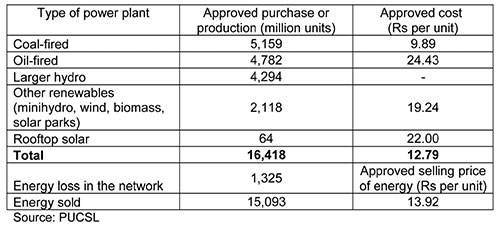 In the absence of Sampur (PUCSL’s letter signed by Chairman Saliya Mathew confirmed cancellation and asked CEB not to build it), PUCSL approved electricity to be produced at Rs 21.59 and sold at Rs 17.02 per unit. The annual loss would be Rs (21.59 – 17.02) x 15,093 = Rs 69 billion per year of approved financial loss. Sri Lanka has a Telecom regulator, an Insurance regulator, a Banking regulator, who never approve prices below costs. Sometime ago the telecom regulator asked the operators to raise the prices, when operators were proposing to reduce prices amidst a price war. But the electricity industry regulator is different: he approves costs amounting to 27% more than the price, not just once but, but continuously for ten long years !
In the absence of Sampur (PUCSL’s letter signed by Chairman Saliya Mathew confirmed cancellation and asked CEB not to build it), PUCSL approved electricity to be produced at Rs 21.59 and sold at Rs 17.02 per unit. The annual loss would be Rs (21.59 – 17.02) x 15,093 = Rs 69 billion per year of approved financial loss. Sri Lanka has a Telecom regulator, an Insurance regulator, a Banking regulator, who never approve prices below costs. Sometime ago the telecom regulator asked the operators to raise the prices, when operators were proposing to reduce prices amidst a price war. But the electricity industry regulator is different: he approves costs amounting to 27% more than the price, not just once but, but continuously for ten long years !
That is 370 million dollars per year as of 2019, the economy is spending, and for years to come, to burn oil (and say we have saved the environment). Did the Minister of Health say we are short of 160 million dollars to buy 40 million doses of the vaccine? Well, being a former Minister of Power, she now knows which Presidential “order” of 2015 is bleeding the economy of 370 million dollars per year, adequate to buy all vaccines and donate an equal amount to a needy country.
Prices are the production costs approved by PUCSL for 2019. The selling price approved by the same PUCSL was Rs 9.27 per unit.
Opinion
Confusion on NGOs and NSOs in Sri Lanka
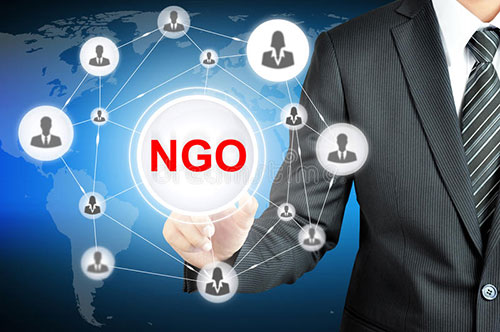
If you listen to politicians and journalists here, you will hear of that curious creature rajya novana sanvidane, a Non-State Organization (NSO). Where do you get them? In the uninstructed and dead minds of those who use those terms. In the real world, where politicians and journalists have developed minds, there are Non-Governmental Organizations (NGO). The United Nations is an organization set up by state parties, not by governments. It is true that agents of states, governments, make the United Nations work or fail. Governments may change but not the states, except rarely. When Eritrea broke away from Ethiopia, a new state was formed and was so recognised by the United Nations. However, the LTTE that tried to set up another state was crushed by the established state that it tried to break away from, and the UN had nothing to do with them.
This entirely unnecessary confusion, created out of ignorance, is so destructive that organizations completely loyal to the existing state, are made to be traitorous outfits, for they are ‘non-state organizations’ within the state. There are citizens of each state, but no citizens of any government. Government is but an instrument of the state. In most states there are organizations, neither of the state nor of government: religious organizations including churches. But none of them is beyond the pale of the state.
Those that speak of rajya novana sanvidane give that name partly because they have no idea of the origin of non-governmental organizations. NGOs came into the limelight, as donor agencies, noticed that some governments, in East Africa, in particular, did not have the capacity and the integrity to use the resources that they provided. They construed, about 1970, that NGOs would be a solution to the problem. Little did they realize that some NGOs themselves would become dens of thieves and brigands. I have not seen any evaluation of the performance of NGOs in any country. There was an incomplete essay written by Dr. Susantha Gunatilleka. NGOs are alternatives to the government, not to the state.
Our Constitution emphatically draws a distinction between the government and state, and lays down that the President is both Head of Government and Head of State (Read Article 2 and Article 30 of the Constitution.) It is as head of state that, he/she is the Commander of the Armed Forces, appoints and receives ambassadors and addresses Parliament annually, when a prorogued Parliament, reconvenes. He/she presides over the Cabinet as head of government. The distinction is most clear, in practice, in Britain where Queen Elizabeth is the head of state and Boris Johnson is the Prime Minister and head of government. However, in principle, Johnson is the Queen’s First Minister appointed by the sovereign, and resigns by advising her of his decision to do so.
In the US and in India the term ‘state’ has special significance. In India there is a ‘rajya sabha’ (the Council of States) whose members represent constituent States and Union Territories. Pretty much the same is true of the United States. In the US, executive power is vested in the President and heads the administration, government in our parlance. The Head of State does not come into the Constitution but those functions that one associates with a head of state are in the US performed by the President of the Republic. The US President does not speak of my state (mage rajaya) but of my administration, (mage anduva). Annually, he addresses Congress on the State of the Union. Our present President must be entirely familiar with all this, having lived there as a citizen of the US for over a decade. It is baffling when someone speaks of a past state as a traitor to that same state. It is probable that a government was a traitor to the state. ‘Treason against the United States, shall consist only in levying war against them, or in adhering to their (States’) enemies, giving them aid and comfort’. That a state was a traitor to the same state is gobbledygook.
Apart from probable confusion that we spoke of in the previous paragraph, it is probable that a president and other members of a government, including members of the governing party here, find it grandiloquent to speak of his/her/their state (mage/ape rajaya), rather than my government (mage anduva) or Sirisena anduva’ and not Sirisena state; it was common to talk of ‘ape anduva’ in 1956; politicians in 1956 were far more literate then than they are now.
When translating from another language, make sure that you understand a bit of the history of the concept that you translate. A public school in the US is not the same as a public school in the UK.
MAHADENAMUTTA









